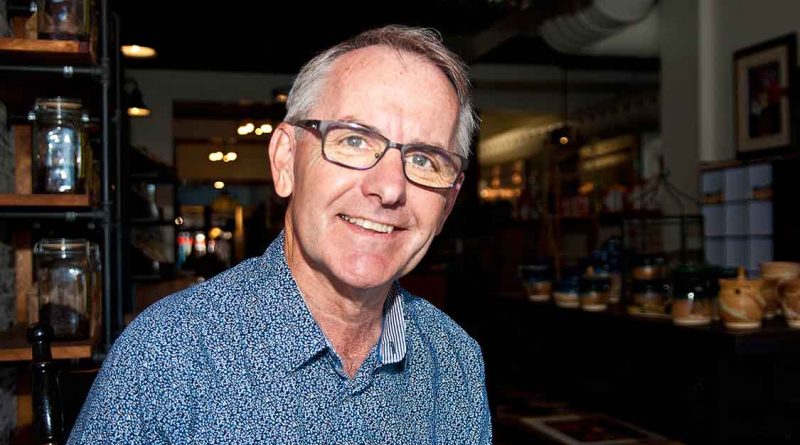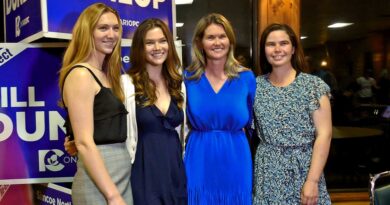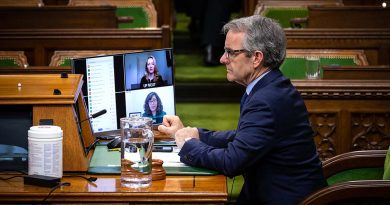The Road To the Federal Election
SUNonline coverage of the October 21, 2019 federal election continues with profiles of candidates running in Simcoe North. Interviews are presented as a series about a candidate’s life journey, background in the riding, political philosophies, and the platforms they and their parties have. Each candidate appears in the order they were interviewed.
Bruce Stanton: He’ll Have A Fifth
By John Swartz
Bruce Stanton is running his 5th election campaign as a Conservative for the Simcoe North riding seat at Parliament Hill. He was first elected in 2006 and at parliament’s dissolution was the deputy speaker of the house.
Stanton grew up on Sparrow Lake, then in the Township of Orillia, and he followed his father into business at Bayview Wildwood Resort.
“When I was growing up in Port Stanton there were a number of family owned lodges, small lodges, summer only. We grew up at a lodge called Bayview Lodge and my grandfather Ernie and my grandmother Clara and my aunts were at a lodge just next door called Wildwood Inn.”
He was exposed to politics early on.
“My dad (Ron) was a municipal councilor, deputy reeve and reeve in what was then the Township of Orillia, which merged into the Township of Severn in 1994,” said Stanton.
“He and mom were also quite involved in the PC party provincially and federally, the riding association work. They never ran themselves. Politics was something that was kitchen table talk and very much a part of our lives. The idea of public service was always part of the time you gave even though you had your career.”
He started Grade 1 at Cumberland Beach Public School in 1963, the school-year after one room schools in Orillia, Lake St. George and the Village of Hamlet closed. After graduating from Park Street Collegiate he enrolled at Ryerson Polytechnic Institute and earned a diploma in hotel administration. Then it was back to work.
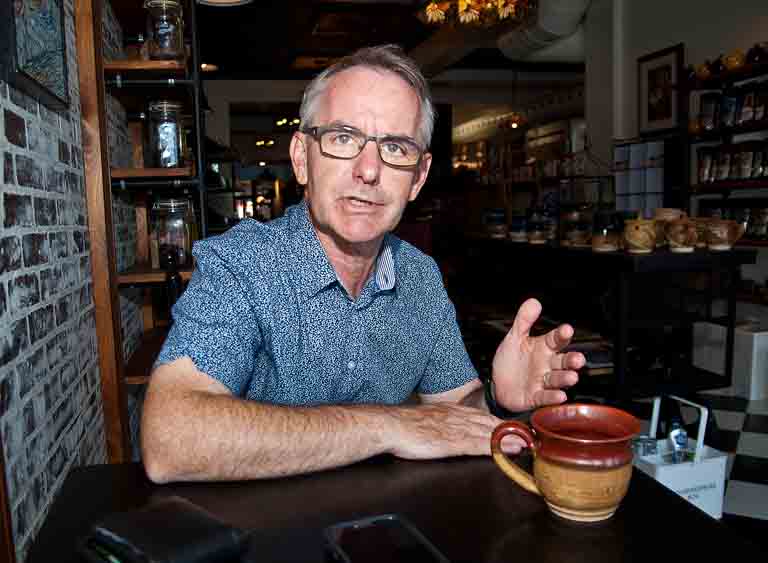
“Full speed ahead,” he said. “There was no gap. At that time Bayview was a small business. Within a year or two of joining my dad and a few workers that worked there year round, we started our first year-round occupancies and had guests staying throughout the year, starting in the winter of 1980-81.”
Of course, he got involved in local politics working on campaigns for both provincial and federal elections.
“I followed dad in his municipal work, went to all candidates meetings,” Stanton said. “Soon after coming home from Ryerson I got quite involved in the riding association. I went to my first nomination meeting for Doug Lewis in 1979 at the newly completed roller rink at ODAS Park. Almost 2500 people attended that nomination.”
P. B. Rynard held the seat for 25 years, followed by the lengthy terms of Doug Lewis and Paul DeVillers. We seem to like keeping our MPs around for a while.
“It’s kind of weird. I’m the 4th MP in this district in my lifetime,” said Stanton. “I think it’s because of the way respective MPs, all of them, they all put a heavy emphasis on local constituency work and I think because they did they were able to renew their mandate.” DeVillers retired, clearing the way for a new representative.
“That was a close election in 2006. Honestly, if Paul had run then as an incumbent I don’t know I would have beat him.”
Those weren’t the only times Stanton put his name into the hat.
“I ran for the PC nomination in Parry Sound, the Georgian Bay riding, back in 1987 when I was 29; just missed winning that. That was a decision that probably ended up OK because David Peterson went on to win that. I ran against Garfield (Dunlop) for the nomination of Simcoe North provincially in 1999. After that nomination contest I kind of took a step back for a while to kind of see what would come next.”
Next was not long in coming. Later that year opportunity knocked.
“There was a vacancy on the Township of Severn council. John Dean wasn’t able to finish his term of council, so with one more year to go before the election, the Township of Severn opened up a space for which they invited interests. I was able to get appointed for the remaining term. In 2000 I put my name forward for that council position, uncontested and served another 3 years.”
Despite a history of working for the party’s successes, being on the inside is different.
“That was a great induction into the world of elected politics and starting to get a really good day-to-day grasp of the different levels of responsibility that a county/township/city/province government has relative to the jurisdiction and responsibilities of the federal government; how those lines are marked. You don’t necessarily get that when you are working on the volunteer party side of the coin.”
His term must have been routine because when asked about highlights he remembers only one thing came to mind. Even people who didn’t live in Severn likely recall it.
“One big accomplishment we did during that time was the water and waste water system for West Shore – somewhat controversial. We took the decision. It wasn’t popular in some parts of the community, but on the whole I think people realize it was the right thing and needed to happen. It was a good investment and now we’re starting to see the fruits of that now. It’s become a very vibrant community.”
On The Hill
In Ottawa he served on the status of women, and industry science and technology committees. Then he got the assignment to chair the Aboriginal affairs and northern development committee.
“One of the more difficult ones we dealt with was the issue around registration. Under the Indian Act the registration of status Indians, there had been changes at the time the constitution was adopted in 1982 that effectively denied access for certain members of the Indigenous community to have their status. It was rather a gender bias, so you’d lose status based simply on who you chose to marry. So we dealt with that. They didn’t complete it properly. They tried to fix it and missed the mark. We took it up again. There had been some court decisions on this as well.”
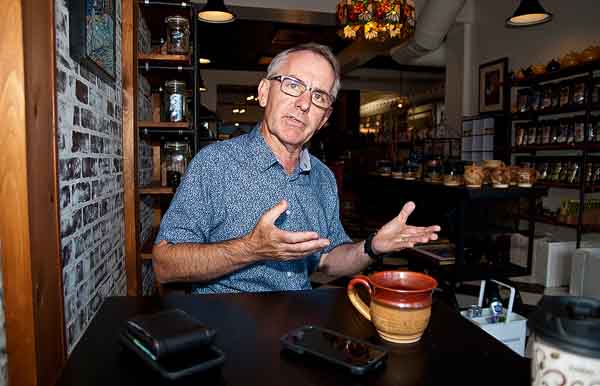
“It was quite involved, quite complex and in the end I think we concluded, legislation was adopted and still the current government had to deal with it as well. Governments continue to work to try and get that right and that’s the way lawmaking can be. It takes a long time and can be messy, but governments have to give attention to these sometimes perceived consequences of lawmaking.”
On a range of issues, government seems to move at a snail’s pace, while many of the rest of us wonder what’s taking so long. Regarding the status issue, there are the viewpoints of more than 600 bands representing 3,100 reserves, several national and regional councils, and the rest of us to bring to some kind of agreement.
“What may seem simple and rather uncomplicated to one observer isn’t necessarily going to be the case for another group. You have to be prepared to work with those who are affected by it to make sure you are getting it right.”
This turns discussion to how MPs get information, or rather, how much they learn from knowledgeable people in their own ridings verses what the ‘experts’ from industry or government administration tell them.
“It’s not an either or. Quite often if there were people, for example, I could speak with people who have a perspective to share on an issue we were dealing with at committee. I would certainly take advantage of that.”
“I do remember having a chat, conversation with people in the community, about some of that work and that was always very helpful. You could always relate it to something you know locally,”
Climate Change
For many voters, there is only one issue, how Canada deals with climate change and by extension, what are the various parties offering for solutions and measures. The discussion begins with the oil industry. For the few who follow big oil, deciphering the gobbledygook (the barrel went up to $100 so naturally the price shoots up; the barrel fell to $50, but there’s all these other problems that keep the price at $100/barrel levels.), is a challenge, how does an MP decide where the truth lies.
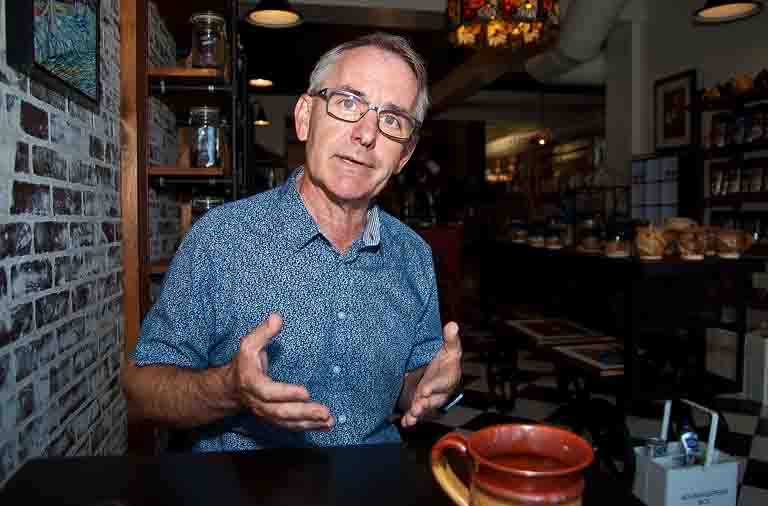
“By reading and availing yourself of the best research and impartial opinion and documentation you can find. On the gas prices issue, you can look at what the president of National Resource Canada has, this is not partisan, this a public service now, and they can describe how the gas and oil business work, both in terms of production as well as refining and retailing. In every part of the gas system, a piece of that has an impact on what the final price is going to be. To understand that, and certainly a lot has been written about this issue, but the fact is its notably complex and at the same time it’s an industry that is the most visible; we don’t even have to get out of our cars to see what the price is.”
Still many question the price at the pump, especially when the stations at the 4 corners all go up and down together.
“The factors that go into the pricing of oil, which is a world traded commodity, it’s at commodity pricing. It’s all based on the market supply/demand scenario and for us here in North America, Canada is 10% of the overall demand for finished petroleum products in North America. We don’t have enough demand to influence what that commodity price is going to be. We’re price taker, not a price maker.”
“Keep in mind it’s all connected as well. The oil companies are mostly North American oils companies that operate here in Canada and retail our gasoline. They are also huge investors in Canada. They employ a lot of people. And the profits they make in Canada also are fueling and parts of pension plans around which today’s retirees are expecting are going to do well.”
For the time being, oil profits are good for the country according to Stanton. Too many people depend on how well the companies do.
“When businesses like the oil industry are doing well, so too do investors. Investors are relying, whether you are a teacher, or whether you are in the public sector or private sector pension plan, when businesses do well and profit, so too do their investments and retirement savings. These are good things.”
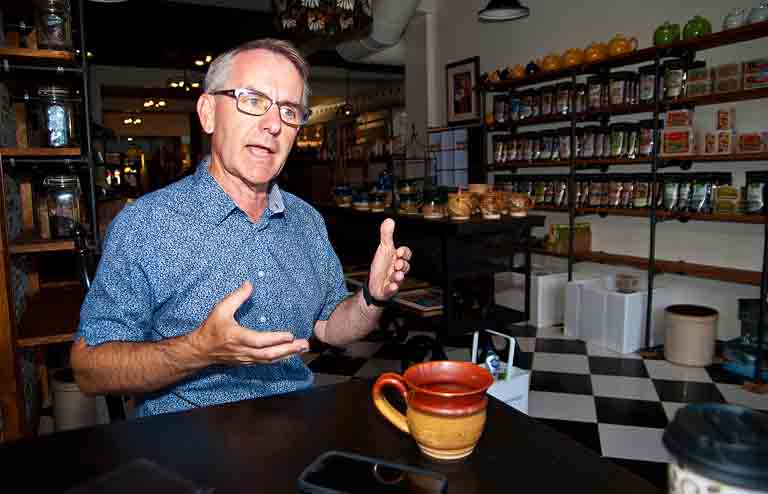
“Don’t get me wrong, there shouldn’t be excess profit taking. And none of these companies should be at the trough of government at the same time. It’s one of the reasons why we, with big corporations, we made a commitment to reduce the amount of corporate welfare. The government of Canada shouldn’t be handing over millions of dollars to large corporations that quite frankly are doing well. They don’t need it. That’s money that should be at the disposal of people who are having a tough time getting by. If we’re giving this kind of money out, well that says to me we should reduce taxes and leave that money in people’s pockets and don’t collect it in the first place,” which Stanton says is his personal belief and party policy.
That isn’t how many see it. Big business, oil, telecommunications, media, banking and etc. seem to get what they want with regulation, law and government subsidy, and of course, there’s SNC Lavalin, a company plaguing federal and provincial governments of all stripes going back decades.
“These are activities that businesses themselves undertook. For example the activities in Africa, the bribery,” said Stanton. “That’s one of the reasons we brought in the Federal Accountability Act in 2006, it was in the wake of the sponsorship scandal, to tighten down the relationships of not only politicians, but federal public service had with the community. There has to be full transparency around how governments operate and how any kind of funding that’s done federally has to be transparent so the public can see exactly how funds are paid and to whom.”
The Nitty Gritty
With regard to climate change, some people want swift action, getting off oil tomorrow preferably; others don’t want to rush; others don’t see the problem at all. Stanton makes a case for a measured approach.
“The oil industry is still a massive employer in Canada, especially in Saskatchewan and Alberta. When there’s so many Canadians whose own livelihoods depends on oil exploration, refining, shipping, pipelines, all of the things that are associated with that industry, you can’t just turn it off. You would have a much different view of that if Orillia was situated in a part of the country where that particular industry was the source of income and day-to-day livelihood.”
But, as some point out, job losses in oil will likely be balanced by job growth in green energy.
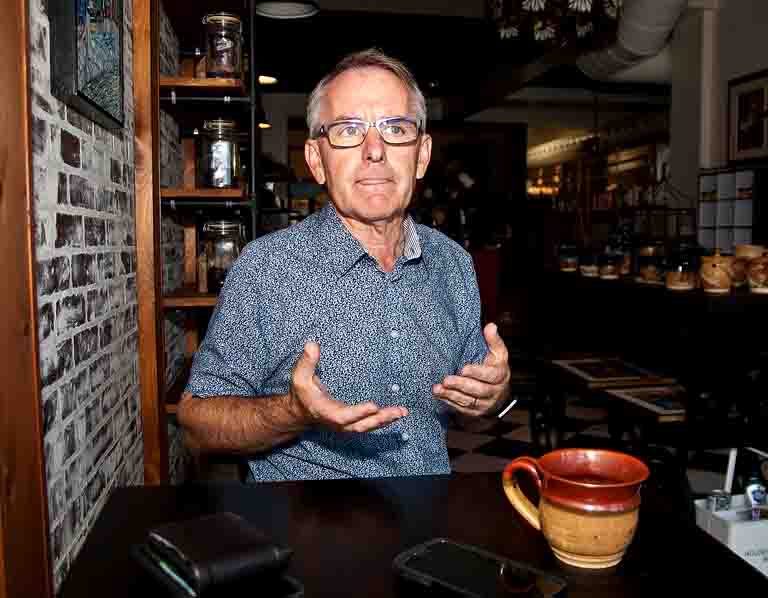
“That may well be and long term I think that’s a general sense of where we are heading. World markets are already responding to some of that trend. For us to get a point where we need to be moving in the direction of less fossil fuels, that’s what we as a society are tending to do, we need to still get there. For the time being we need gasoline and oil and other fossil fuels and natural gas to fuel our energy sources and our point is why should we be somehow trampling on our own oil industry, a very ethical, environmental standards which are among the best in the world are practiced here in Canada, when we are importing foreign oil by the tune of 700,000 and some odd barrels a day from other foreign sources, when we’re trampling over our own industry here and yet we don’t seem to have the same concerns about the production of this crude oil that we’re bringing from places like Nigeria and Saudi Arabia.”
“Canada can be part of that while at the same time making sure that we’re driving investments in new research that will open up less fossil fuel dominant energy sources. We already have a pretty good record there in terms of the electricity grid and how clean it is and how low emission it is. We’ve come a long way there compared to a lot of countries around the world. Our view is simply we don’t need to be putting a useless tax on people in the form of a carbon tax, which may have the appearance of doing something to reduce GHG emissions, but what we can do is do things that will actually reduce emissions world-wide. Things like exporting our clean natural gas to countries that are using coal.”
“Here’s one measure we can use by working with our allies that will help emissions globally come down because it is a global issue. We need to do our part here in Canada, We have to reach our Paris Climate Accord targets.”
Carbon Tax
“We just don’t believe (in) collecting more tax,” said Stanton. “I think governments have responsibility to find ways to green the economy. I think we’re continuing to do that, but to do that without putting an additional tax in place.”
In theory, isn’t the carbon tax supposed to provide funds to get off fossil fuels? Isn’t it supposed to condition us to use less gasoline and other petroleum products?
“I don’t think this kind of a carbon tax, considering no other tax has been changed, it’s an additional source of revenue for the government. There’s no evidence whatsoever it’s actually going to make a dent in the overall habits of how people make those choices. British Columbia has had a carbon tax for two years, their overall GHG emissions have gone down 0.6%. There’s no real gain.”
“When they are high enough (tax) to cause big changes and swings in people’s habits, then they have been known to take effect, but usually that happens when you are in a jurisdiction where that tax has been shifted to a pool against reduction in taxes in other places. That’s not the kind tax the current government has proposed.”
“The government itself has been told that unless the price for that carbon tax goes up considerably, like well over $100 per ton, as opposed to the $50 they proposed, they have $20 right now, until it gets over $100 per ton there really won’t be any measurable change in people’s habits. Perhaps that’s the way the government is looking at it at this point, we disagree. We think we need to fight climate change globally and do all the things we need to do here without collecting more taxes to bring down our GHG emissions.”
The Way We Work
Many prognosticators with insight are warning there will be lots of unemployment as technology makes some of jobs like serving burgers, making change at the bank, driving trucks, etc. obsolete. There will be too many people with no reason to catch he bus in the morning because there just won’t be jobs for them. This raises the question of how people will survive.
“These are issues that we as a society, as generations have had to face way even before us. The technological pace of change, granted it’s at a point we’ve not seen in our lifetime, the advancement of technology and its effect on the nature of work, it’s always been there in different facets and we have to grapple with it. Yes, governments do have a role to play there, but we also don’t want to be standing in the way of technological advancement that can make production more efficient and effective and less costly for consumers, make our lives better and safer and all those things.”
“Even in the last ten years when we’ve had massive technological change the number of jobs available for workers in Canada continues to grow. Here we are sitting at record employment in Canada. We’ve got a slightly declining workforce in terms of the number of people available to work; the workforce participation has declined because of the aging population and there’s still several hundred skilled worker jobs here in the County of Simcoe that can’t even be filled. Over time we will come up against these questions and deal with them.”
Some of those same experts are also warning – objects in the rear view mirror are large than they appear – and the economy and nature of work is changing faster than it appears. One answer being floated is a universal basic income. Stanton spoke about his perception of where we are headed and where the party stands.
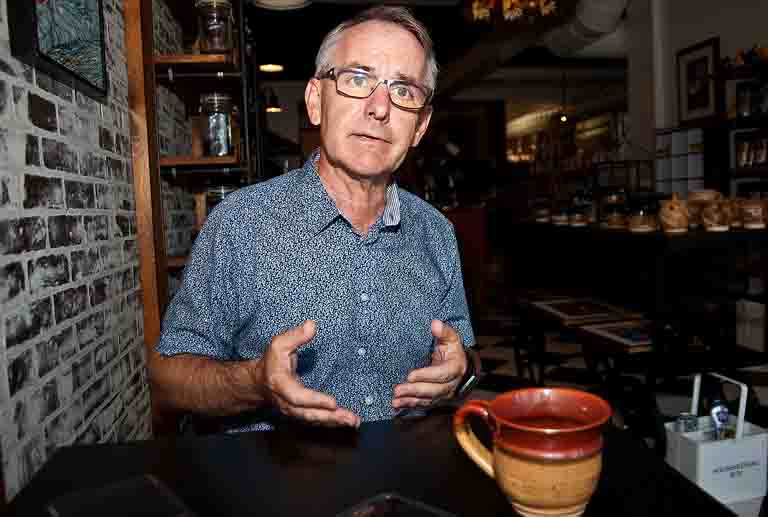
“The attention of politicians to these issues has to be very close and very informed at each step of the way. The political rhetoric is one thing, when it comes to actually studying these problems and getting it right, this is where you want good, thoughtful testimony, and information from the experts on how you best do that.”
“I don’t know (about UBI) is the honest answer. It’s not something we have in our policy positions. Social income support is typically in the provincial domain. I think the government of Canada has responsibility to look at where poverty, people living below the low income cutoff, what the nature of that is and how best to come at it.”
“In Ontario for example, where you’ve got a percentage of the working-age population still living below the low income cut off, the federal government has a role to play there as well. Honestly, it’s not something that is currently on the horizon.”
But should it be? In one industry, banking, just in the last few months Deutsche Bankcut 18,000 jobs, Wells Fargo 200,000, HSBC 10,000, every Canadian Bank has been trimming a few hundred here, a few hundred there for the last few years, all the while major restaurant chains and department stores are shedding cashiers, there no where for money handlers to go for a job. Just wait until Amazon roles out delivery by drone to a greater scale and delivery drivers get axed, not to mention the truck drivers supply warehouses who will lose their jobs to robot trucks. New technology is driving much of this.
“The nature of work is something that is evolving and it has over time. It has in our generation and it will continue to do it in the future. That becomes the challenge. In fact for as many of those changes in areas of work that become smaller over time opens up other opportunities in other facets of society we may not even see right now. Look at even how the service industry has grown in the last 30 years. I’m not talking about take-out food, but things like property management, healthcare services, for which we’re prepared to pay. There’s no doubt for people to earn a living they need decent high paying employment that gives them a kind of wage and a kind of salary they can have their own homes, be financially independent, save money for their kids to go to university and college, these are the things the younger generation and people in their 40s and 50s see as how government should be helping to set those kinds of conditions,” said Stanton.
“It will cause some major shifts in the nature of work, for which the governments would be prepared to respond. That’s a real scenario, that’s a real risk or threat we see on the horizon, but it will have to be good policy and programming. We’ll have to be informed as how that plays out. I think one needs to be open. Put it this way, even if you may not have that policy in front of you right now, the basic income approach, I think that’s an area that has to be well studied. I know the province was running a pilot program on that. I think more information is probably going to be needed to help policy makers find a way to make that work.”
“Obviously you want communities across Canada where people have livelihoods and work and that’s the way we’re built; they want to go out and do things that produce and make a living for our families. That’s kind of what we all aspire to do, in some kind of gainful employment,”
The Last Word
As a 75 minute conversation closed, Stanton got to have the last word, fill in the gaps of topics missed.
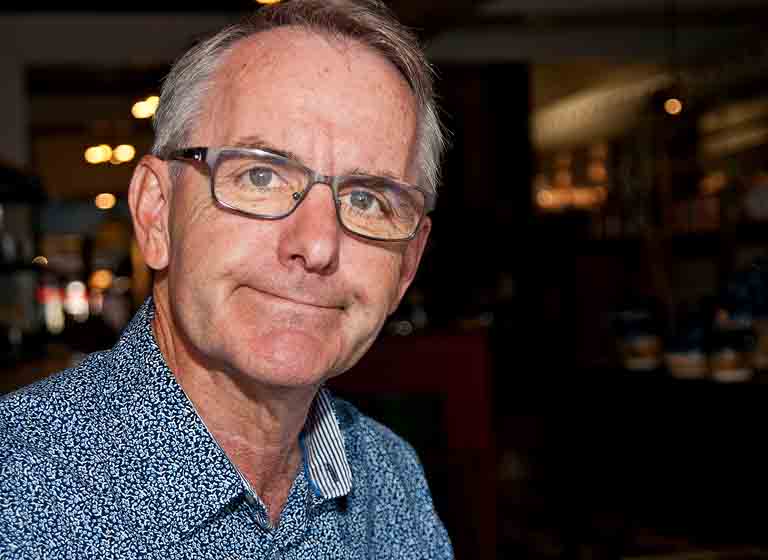
“I think we really owe it to people in today’s context, looking at climate change, looking at many of the things we just discussed, the future of work, that we’re doing the best we can as a government to make sure we spend within our means, to make sure we are not taxing people more than we absolutely need to, to make sure our government is responding well. This is not the time I think when our economy is relatively strong that we should be borrowing to the degree that we are. We need to set a good example there because there could be occasions in the future where we’re going need to borrow in order to bolster as we did in 2009 to be able to support the economy and make sure jobs will be strong.”
“Jobs, people’s livelihood, people’s independence and the financial foundation that they need to have each and every day, to support their kids and do all the things they want to do. I think the government has a responsibility to do that, especially so here in Central Ontario. In Simcoe North we still deal with some of the legacy aspects of our community, the vulnerabilities that we see in our communities from Orillia right over to Midland, Penetanguishene where people, some are having a real tough time getting by. We need to make sure that they have future, there’s an opportunity there for promotion, good paying work. If there is anything I could do to influence things in that direction I think that would be a legacy that I could be proud of.”
(Photos by Swartz – SUNonline/Orillia)
Other Candidates:
Support Independent Journalism
.

